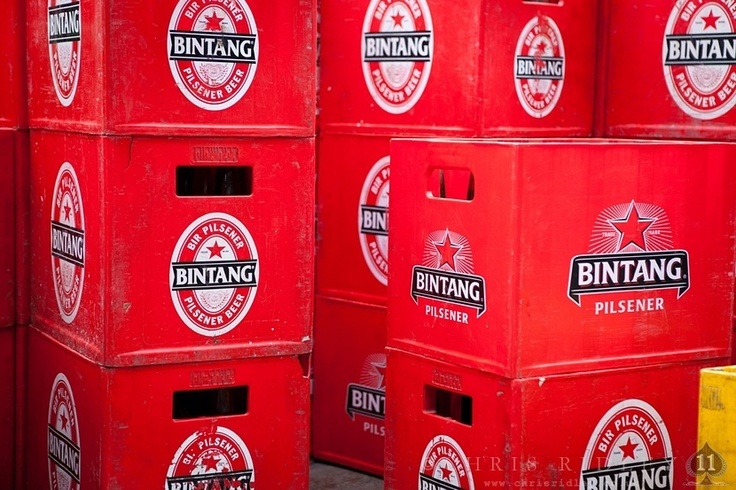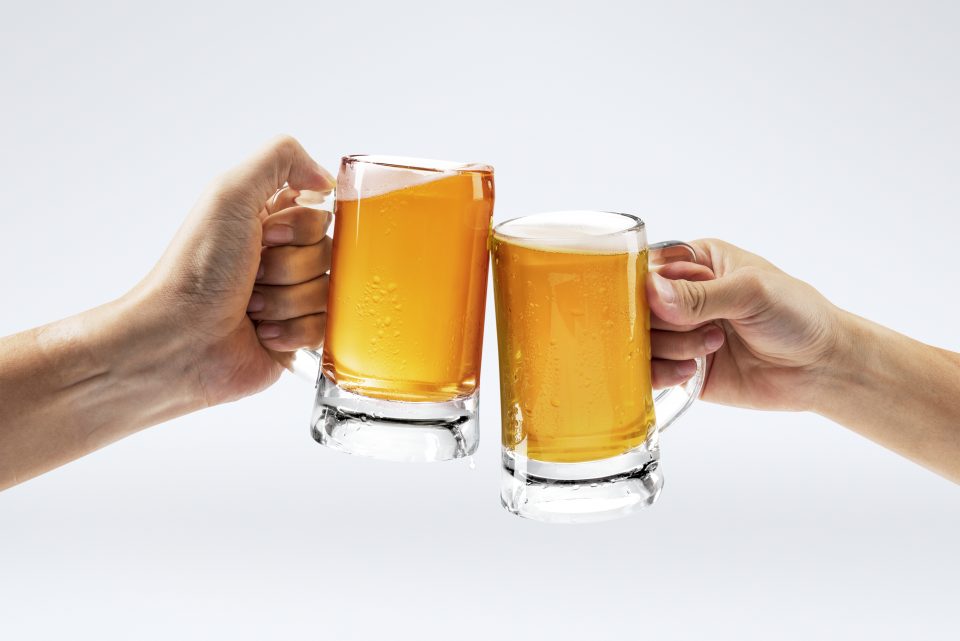“I do not live in the world of sobriety,” remarked Oliver Reed.
While most of us wouldn’t sink so permanently into a lifestyle of wild drunkenness as the famous British hell-raiser, the odd glass of beer or wine is an acceptable way of winding down or oiling a social occasion. Even in a majority-Muslim country like Indonesia, alcohol is consumed relatively widely, mostly in the form of the local beer, Bintang, brewed by PT Multi Bintang Indonesia.
First, Bintang is not a beer for the connoisseur. It’s more of a thirst-quencher for the “swig and swill” brigade – those who don’t care what their tidal-wave quantity of pilsner tastes like as long as it’s cold and fizzy. These are the sort of people who believe that The Agony and the Ecstasy is about before and after the pubs open. Bintang is beer-session beer – cheap and sufficiently alcoholic (4.7 percent).
There are people online who take beer (any beer) seriously – one might even say soberly. One website describes Bintang as “light-bodied with low carbonation, drinks smoothly but is slightly astringent,” and “sweet, bland, a very slight bitter grassy note from the hops, slightly woody aftertaste”. Few Bintang drinkers I know would recognise this highbrow description. ‘Tastes tickety boo,’ would more likely come from them, or “goes down a treat, but slightly vomity aftertaste when swigged after a belch.”
In Jakarta, be sure to ask for your bottle of Bintang dingin sekali (very cold), or you might be served a tepid one. In fact, many Indonesians prefer to drink their beer with ice – a sort of Bintang on the rocks – which I guess has a beneficial hydrating effect, like being attached to a saline drip while you consume your alcohol. Jakarta’s bars and restaurants favour serving large bottles of Bintang (700ml) over small ones (330ml), but, hey, who’s complaining? Some do stock small bottles, but by some apparent freak of pricing, they cost almost the same as the bigger ones.
Also Read Jokowi: Liquor Investment Banned, Alcohol Trade Allowed
We have the Dutch to thank for Bintang (but then we also have the Dutch to thank for wooden shoes and keel-hauling). The original colonial-era brewery in Surabaya was run by Heineken, which is still the majority shareholder. This explains the big green bottle and other similarities to the “mother beer”. Heineken’s famous slogan was: “Heineken refreshes the parts other beers cannot reach”. One wonders why Bintang wasn’t marketed under a similar slogan. “Bintang refreshed the parts other beers aren’t interested in”.
Bir Bintang (bir is the Indonesian word for “beer” and not an illiterate drunkard’s misspelling) sports a red star on its label (bintang means “star” after all). Some might say this indicates the beer’s ordinariness, since calling your beer “Star” – or “Anchor” for that matter – is like naming your pub The Nag’s Head. However, the (ex) president director of Multi Bintang, Michael Chin, believes that the ongoing success of the iconic brewer is “written in the stars”. He also said that the perfect moment for sipping a Bintang beer is on a sunset walk with his family along Bali’s Seminyak Beach.
That may be so, but prior to COVID-19 restrictions, Bali’s Kuta area was where you could find a less romantic scene. It was like peeling back any illusion of drinking being a civilised pastime, revealing groups – often families – of Western holidaymakers bumbling intoxicatedly around the streets like charmless Oliver Reeds out on a binge. They had the complexion of tomato flavoured crisps, wore Bintang singlets to show off their flabby arms, and had a vocabulary comprised of “oy”, “mate”, and other monosyllabic hollers.
If it seems that I’m poking fun of Bintang and its drinkers here, it’s because I am enormously fond of the stuff. I’ve been drinking it for twenty years. Other countries might have their national beers – Thailand’s Chang and Singapore’s Tiger – but only Indonesia’s Bintang seems to embody the qualities of a nation so well. It’s cheerful. It’s warm and welcoming to strangers (when not refrigerated). And it should be celebrated.
However, an insidious game has been afoot in Jakarta for several years now. It’s called “Where’s the Beer got to?” The answer to this question regarding mini-marts is easy. The beer has gone. The sale of alcohol by small retailers was barred in 2015, allegedly to “save the country’s youth”.

Research indicates that this move has led to an increase in the consumption of black-market booze, which is cheap and easy to get. Oplosan is a potent cocktail that can contain almost anything: energy drinks, industrial alcohol containing methanol, or spirits brewed by amateurs from fermented cassava. Slogan: “Opsolan poisons the parts that other beers leave alone”.
In supermarkets, the expulsion of alcohol is happening more gradually. Whereas before beer was sold openly like any other legal product, over recent years its shelf space has shrunk and retreated, rather like a tumour being attacked by aggressive medication. In some places, it is now completely locked away. Asking to see the beer section is like asking to visit a death-row prisoner on Nusa Kambangan Island. I see no justification for this discrimination. Other than that alcohol can turn you into a buffoon.
My friend once bet me that he could walk on his hands outside the Jalan Jaksa bar we were in. Now, he was not a slim, athletic man. Therefore, I accepted the wager and invited him to go ahead and prove it. And he did. It was a sight to see. I wouldn’t go so far as to call it elegant – he looked like a pot-bellied buffalo whose hind legs were tangled up in a helicopter winch – but it was a perfectly balanced performance.
After he had gone home, he called me on my handphone, sounding urgent. He asked me to retrieve four SIM cards that had dropped out of his pocket when he’d inverted himself, and to return them to him the next day. He also instructed me to never tell his girlfriend that he possessed more SIM cards than the one usually inserted in his phone.
Back to Oliver Reed for the last word: “I drink because the nicest people I’ve ever met have been in pubs” (the jagged glass-inflicted scar on his face might seem to contradict this). “Pub” after all is short for public house, a place where members of the local community can get out from in front of the TV, socialise, do the odd handstand or backflip, and chill out. So, get down to your local bar as soon as lockdown is over. Have a glass of Bintang. Cheers.




